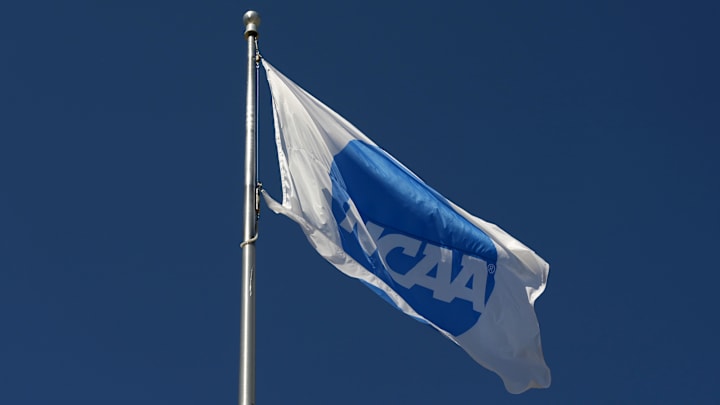Another NCAA lawsuit: South Dakota universities sue NCAA over House settlement

As attorneys “go back to the drawing board” on the House v. NCAA settlement, a state attorney filed a lawsuit against the governing body on Tuesday.
South Dakota Attorney General Marty Jackley and the South Dakota Board of Regents, on behalf of South Dakota State University and the University of South Dakota, announced that they filed a lawsuit on Tuesday that alleges the proposed $2.8 billion settlement is unfair to non-power conference schools and female athletes.
“I am disappointed that our South Dakota athletes and universities are paying the price for a settlement that did not involve any of our conduct,” Jackley said in a statement. “This settlement unlawfully and blatantly discriminates against female student-athletes by limiting them to less than 10 percent of the proceeds.”
In May, the NCAA, its power conferences and attorneys representing Division-I student-athletes agreed to settle three antitrust cases that threatened the current business model of college athletics. As part of the settlement’s terms, nearly $2.8 billion in back pay is owed over the next 10 years to current and former student-athletes dating back to 2016. The NCAA is required to fund $1.1 billion of the total, while the schools are expected to fund $1.65 billion through a reduction in distribution.
According to the approved framework, the power conferences will pay about $644 million in damages while the 27 non-power conferences will pay $990 million.
The lawsuit from the South Dakota attorney general argues the settlement places too much financial responsibility on non-power conference schools even though they didn’t have a say in the proposal.
Formal objections play a role in approving the House v. NCAA settlement. Several other groups have filed official grievances, including one that has been withdrawn. Houston Christian University, an FCS school in the Southland Conference, filed an objection in June that voiced similar complaints with the South Dakota group, though U.S. District Judge Claudia Wilken declined to consider it because Houston Christian wasn’t a party in the lawsuit.
Judge Wilken declined to grant the House v. NCAA settlement preliminary approval during a hearing last week with attorneys representing the NCAA, power conferences and Division-I athletes. Her hesitation was mostly due to issues over language that places restrictions on NIL collectives. Per the settlement, a third party, chosen by the NCAA, would have the ability to block any NIL deal that’s worth over $600 if it is seen as “pay-for-play.”
Attorneys have three weeks to make the necessary changes to the settlement, though based on last week’s hearing, it won’t be an easy process. Rakesh Kilaru, an attorney representing the NCAA, made it clear an agreement could hinge on whether the governing body can maintain language restricting NIL collectives and third-party deals in the settlement’s terms. Otherwise, the NCAA would have to resort to inserting its existing NIL policy language — which has been ruled against in the courtroom in the past — or settle without its NIL approval process entirely.
In February, a court in Tennessee ruled that the NCAA cannot enforce its NIL policies, particularly the ones that prohibit athletes from negotiating with collectives before committing to a school.
Judge Wilken is no stranger to the NCAA’s amateurism rules either. She presided over O’Bannon v. NCAA, which found it was illegal for companies to profit off athletes’ NIL without compensating them for it; and Alston v. NCAA, the case that found the governing body was subject to the same antitrust laws as other companies.
